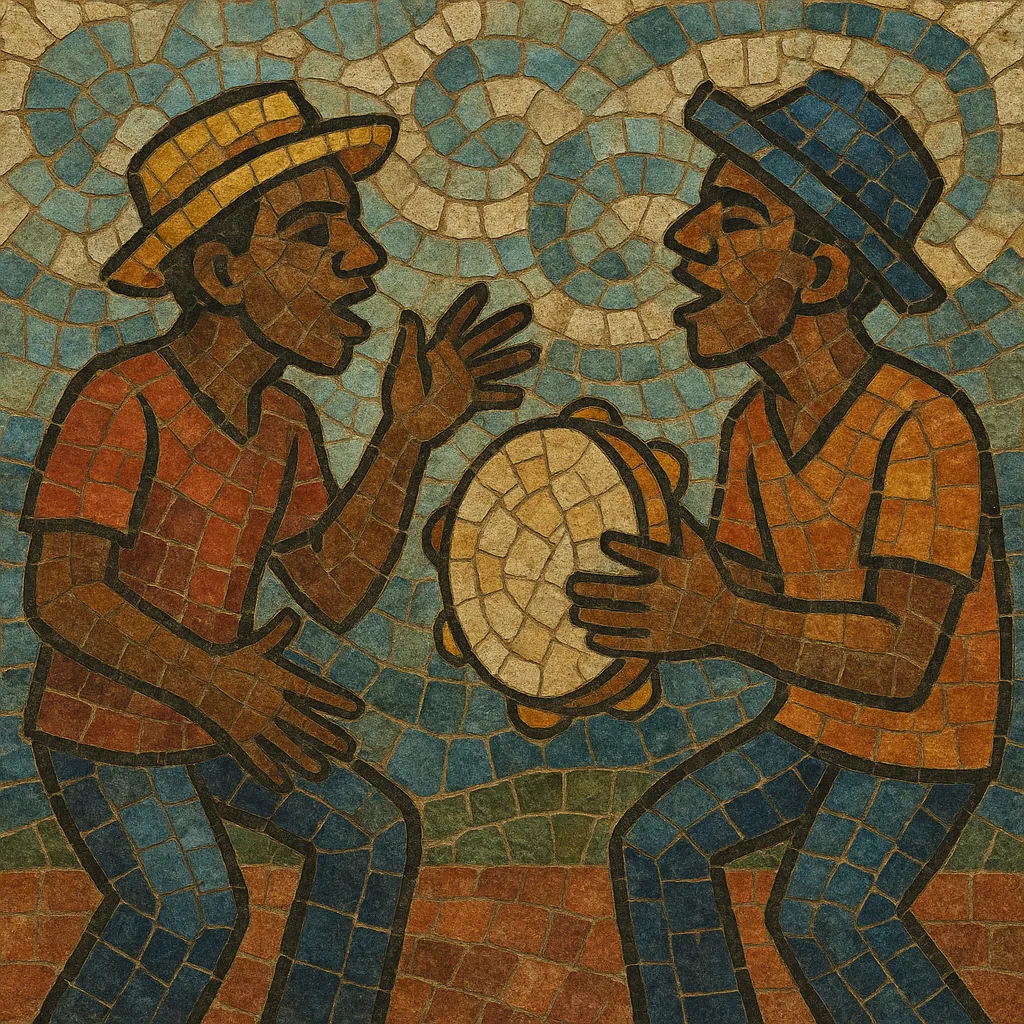Embolada is a fast-paced, improvised sung-poetry style from Brazil’s Northeast, typically performed by two singers (emboladores) who trade witty, tongue‑twisting verses over a driving pandeiro rhythm.
It is closely related to coco and to the broader repentista tradition of extemporaneous verse, blending Afro‑Brazilian rhythmic cells with Iberian poetic structures and local storytelling.
Performances often feature call‑and‑response, wordplay, satire, and topical commentary, with singers competing in verbal duels that prize quick thinking, metric control, and crowd engagement.
Embolada emerged in the Northeast of Brazil (especially Pernambuco, Paraíba, and Rio Grande do Norte) during the 19th century. Its rhythmic foundation and performance setting grew from Afro‑Brazilian dance‑song practices such as coco, while its improvised verse traces to Iberian oral-poetry and strophic song forms transmitted through Portuguese colonization. The term "embolada" evokes tangled or rolled words, pointing to the genre’s hallmark: rapid‑fire delivery and tongue‑twisting diction.
By the early 20th century, embolada was a staple of fairs, markets, and street festivities, with duos of emboladores competing for audiences. The pandeiro became the emblematic instrument, providing a bright, syncopated 2/4 drive. Mid‑century recording and radio exposure helped spread the style; artists associated with coco and popular Northeastern music (like Jackson do Pandeiro) carried embolada phrasing and humor to broader audiences, while dedicated emboladores preserved the duel format in live contexts.
From the late 20th century onward, embolada continued both as grassroots performance and as a reference point for innovative scenes. The 1990s mangue beat movement in Recife incorporated coco/embolada grooves and vocal cadences into electric band settings. In parallel, spoken‑word and improvised-verse circuits (including poetry slams and hip‑hop battles) in Brazil acknowledged affinities with the fast, competitive spirit of embolada. Today, the genre remains vibrant at regional festivals, community events, and cultural programs that celebrate Northeastern traditions.


